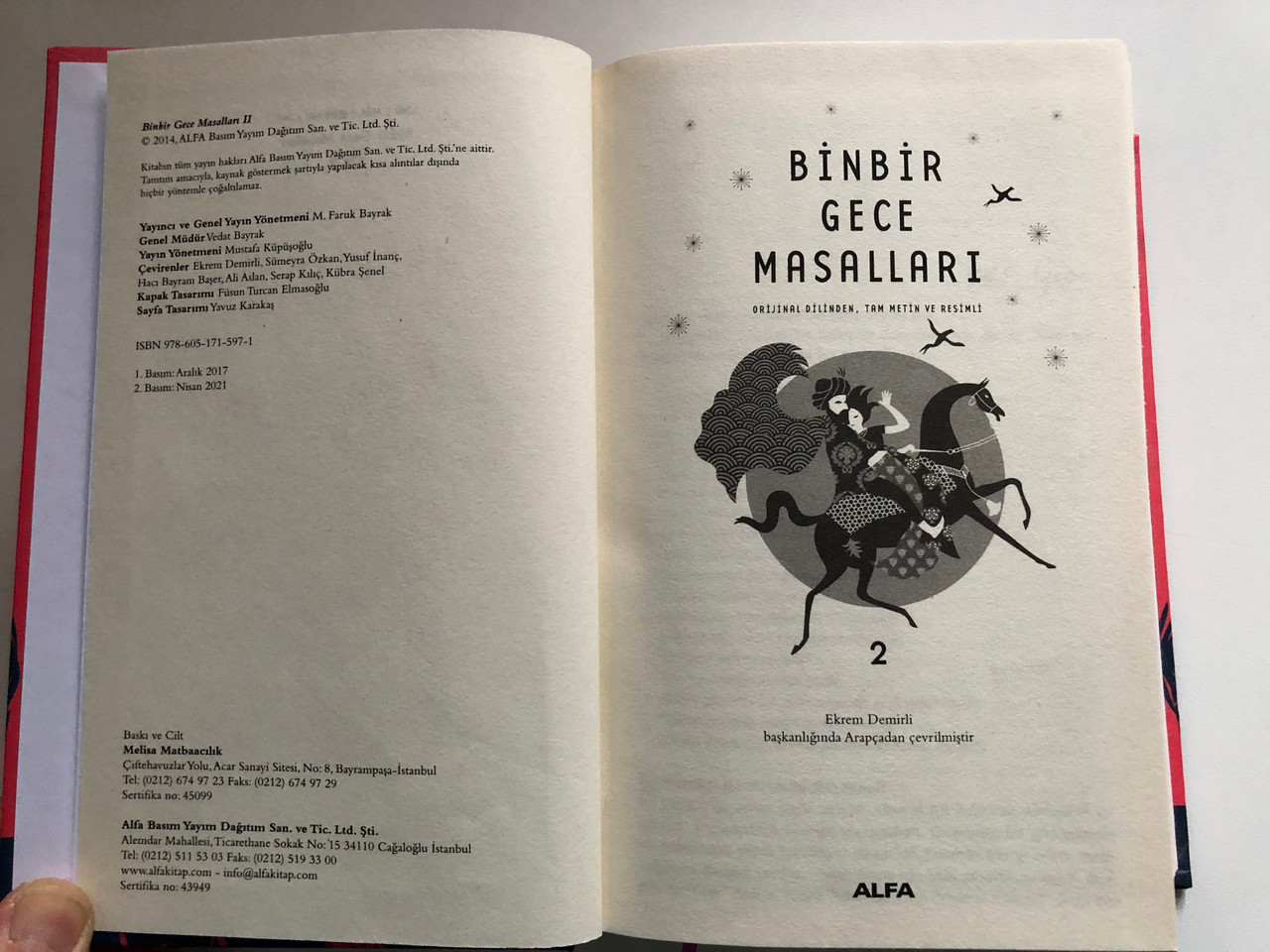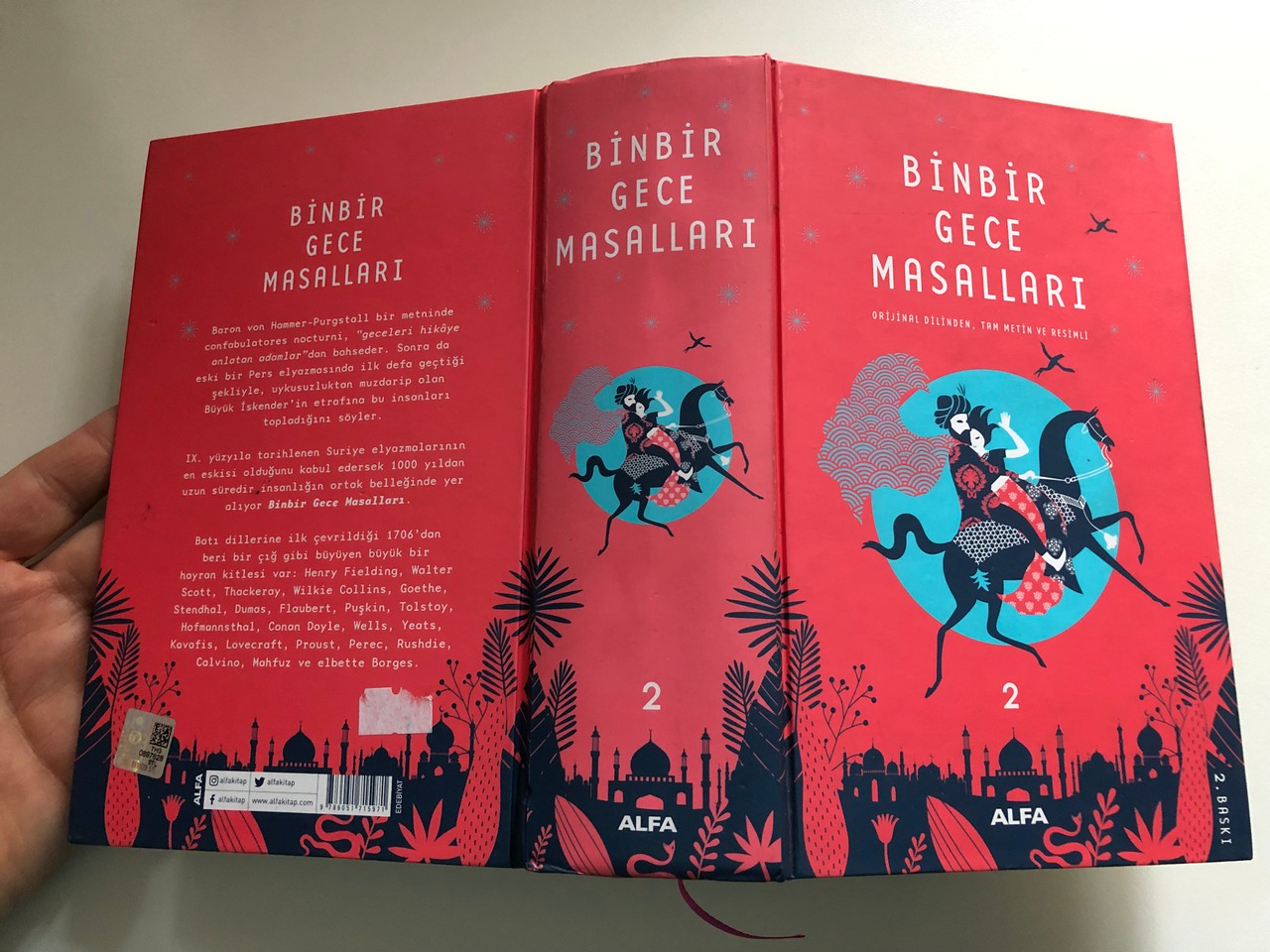Description
One Thousand and One Nights 2 / Binbir Gece Masalları 2
Publisher / Yayınevi: Alfa Yayınları
Binding / Cilt: Hardcover / Sert Kapak
ISBN-13: 978-6051715971
Printed in / Basım Yeri: Turkey / Türkiye
Pages / Sayfa Sayısı: 990
Language / Dil: Turkish / Türkçe
Description (English)
One Thousand and One Nights 2 is a magnificent continuation of the legendary tales of the East, presented in full text with beautiful illustrations, and translated from the original language. This deluxe hardcover volume features enchanting stories told by Scheherazade, who spins tales night after night to captivate the Sultan and delay her fate.
Within these pages, readers will encounter magical adventures, timeless themes, and characters filled with wit, bravery, and wonder. Rich in cultural and literary value, this volume is a treasure for lovers of folklore, classical literature, and world storytelling.
Açıklama (Türkçe)
Binbir Gece Masalları 2, doğunun efsanevi masal dünyasının büyüsünü sürdüren tam metinli, resimli ve orijinal dilinden çevrilmiş özel bir ciltli eserdir. Her gece Sultan'a bir hikâye anlatarak ölümden kurtulan Şehrazat, bu masallarda da okuyucuyu akıl dolu, cesur ve büyüleyici karakterlerle tanıştırıyor.
Bu hacimli eserde, büyülü olaylar, kadim anlatılar ve kültürel motiflerle bezeli unutulmaz masallar yer alıyor. Klasik edebiyat ve halk hikâyelerine ilgi duyan herkes için kültürel bir başyapıt niteliğinde.
Features / Özellikler
-
Unabridged full text / Eksiksiz tam metin
-
Illustrated throughout / Resimli
-
Translated from the original language / Orijinal dilden çeviri
-
Elegant hardcover edition / Şık sert kapak baskı
-
Rich in Eastern culture and literary heritage / Doğu kültürü ve edebiyat mirasıyla zengin
Ideal for / Kimler İçin Uygun?
-
Readers of classic world literature / Klasik dünya edebiyatını sevenler
-
Folklore and storytelling enthusiasts / Masal ve halk anlatılarına meraklılar
-
Collectors of illustrated books / Resimli kitap koleksiyonerleri
Hashtags / Etiketler
#OneThousandAndOneNights #BinbirGeceMasalları #Scheherazade #AlfaYayınları #EasternTales #ClassicLiterature #IllustratedBooks #MasalKitabı












































